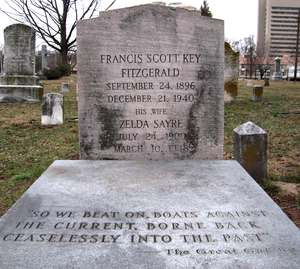Another book came for me in the mail a while back and I finally got around to reading it. Today's review is for
Phil Harvey's Show Time, a 257 page novel from Lost Coast Press. Lord of the Flies meets Survivor in this tale of seven reality TV contestants left stranded on an island in the middle of Lake Superior live in front of an international audience. However, despite this promising premise, Harvey's novel falls flat, with clunky and far-fetched dialogue, too many loose ends, and a failure to take account of the ways reality TV has changed since the late 1990s. Despite these flaws, the novel does hold some appeal if one forgets the reality TV show aspect and focuses instead on the characters' attempts to survive in the wilderness and make it through winter without starving to death.
Show Time is set in the not so distant future, when the viewing public has become bored with what violence is offered to them on the TV. To satisfy this demand, a group of TV executives have created a new breed of reality show, where seven contestants are brought together on an island and have to survive the elements and one another. If they can make it, the contestants will win $400,000 apiece. The group onsists of four men and three woman. Each one brings skills of their own, but also faults which threaten their ability to work together to improve their odds of survival. Most of the novel centers on Ambrose, who is a capable and levelheaded, but suffers from a severe gambling addiction that he can only pay off by participating on the show and winning.
One of the fascinating parts of the novel deals with how the characters enter into a shifting array of alliances to secure food, shelter, and other supplies. Even though the seven adults know they are being watched and judged by millions of people, it does not take long until their true, instinctual natures emerge. Harvey posits an interesting take on the different philosophies of human nature, which reality television is a ready means of conveying. However, they do not surrender to their violent impulses and create a purely Hobbesian world of endless strife on the island. Nor do they build a peaceful Utopia fit for Rousseau's noble savage. Instead, their self-interest motivates them to work together in a Machiavellian fashion. A barter economy is set up where anything, including sex, can be exchanged for goods and the contestants continue to vie for power, especially the males Ivan, Rudy, Ambrose, and Valentin.
The novel could have spent more time focusing on this development, showing how over time the behavior of the individuals on the island becomes more institutionalized and the effects of their division of labor. The lives of the female characters, Ahai, Maureen, and Cecily would also have been interesting to spend time on. Would their trading sex for protection and food become more regulated over time in this evolving dynamic? Or would they eventually be forced to deny their right to participate in such exchanges? The world of the executives producing the television show needed work as well. It could either have been expanded or dropped altogether. Throughout
Show Time, the people putting the drama together constantly speak of how the violence of the show is necessary to keep the population pacified but this idea is never quite fleshed out with too much telling and not enough showing.
Instead, their are too many scenes which seem designed to merely showcase the authors' idea of "snappy" and "witty" dialogue. Unfortunately it is this dialogue which is likely to take the reader out of the world of the novel. All too often the characters resort an affected speech that seemed drawn from pulp and noir novels and is out of place, especially among people starving in the wilderness. These ridiculous exchanges made me put down the book and write either "wtf," "ugh," "really?", or just "?" next to the offending passages. It is not a good sign for a novel when a reader has to stop eating their
malai kofta and feels compelled to mark up your book.
Nevertheless, it is a quick and compelling enough read when the novel centers on the inhabitants of the island, and no one mentions or worries about the the cameras. These sections which deal with simply trying to survive are engaging and well written, even if they tend to get repetitive. There are only so many different ways of writing hunting and fishing scenes. Harvey also does a decent job of dealing with the effects of expose to prolonged calorie reduction and heat deprivation. At times it seems the whole reality show conceit is just a way to write a novel about survival instead a scathing commentary on the media and American culture. It seems difficult to believe people would spend so many months risking death or serious injury just for $400,000 when there are so many other televised contests that require far less risk for far greater reward.
Show Time treads on previous concerns of where reality television might be heading without adding anything new to the discussion. More importantly, it ignores the ways reality TV has changed since it initially become popular with
Survivor. This work might have been timely in 1999, when shows were centered around competitive ordeals held out in the dark wilds of nature. Now, it feels dated, showing us a vision of a future which seems unlikely due to the rise of shows which deal with the lifestyles of the somehow rich and famous. These have become America's current opiate, not bloodletting spectacles. True, we are glued to our television sets so we can watch others' bad behavior, but these deprived actions occur within civilization, not outside of it.



